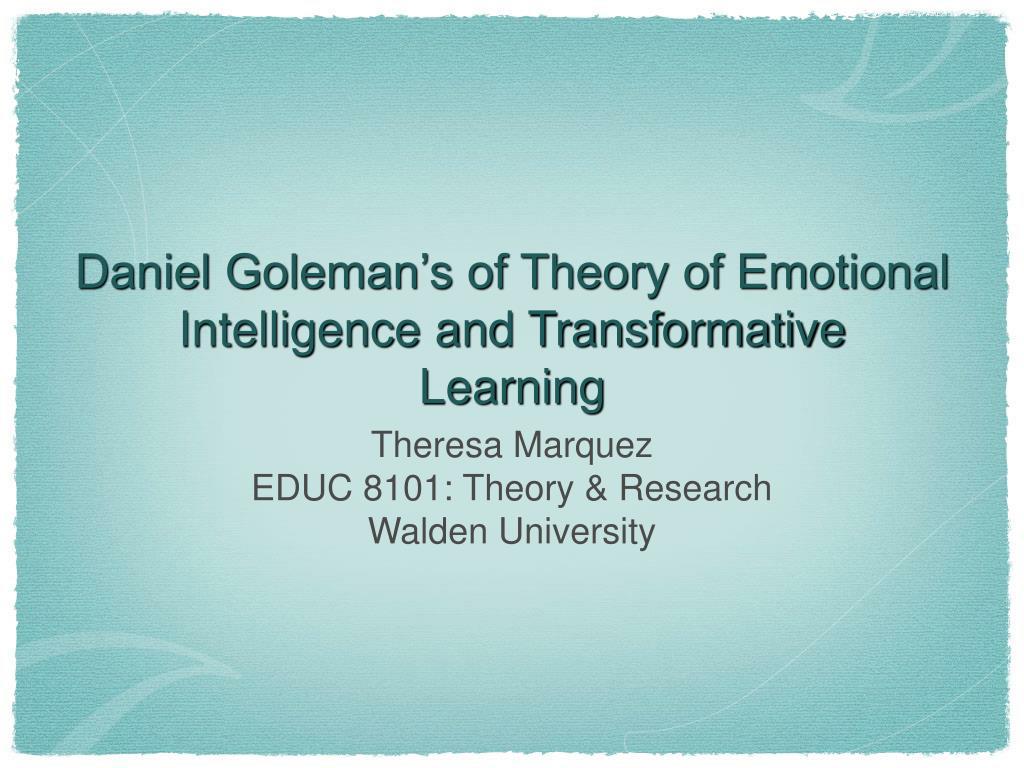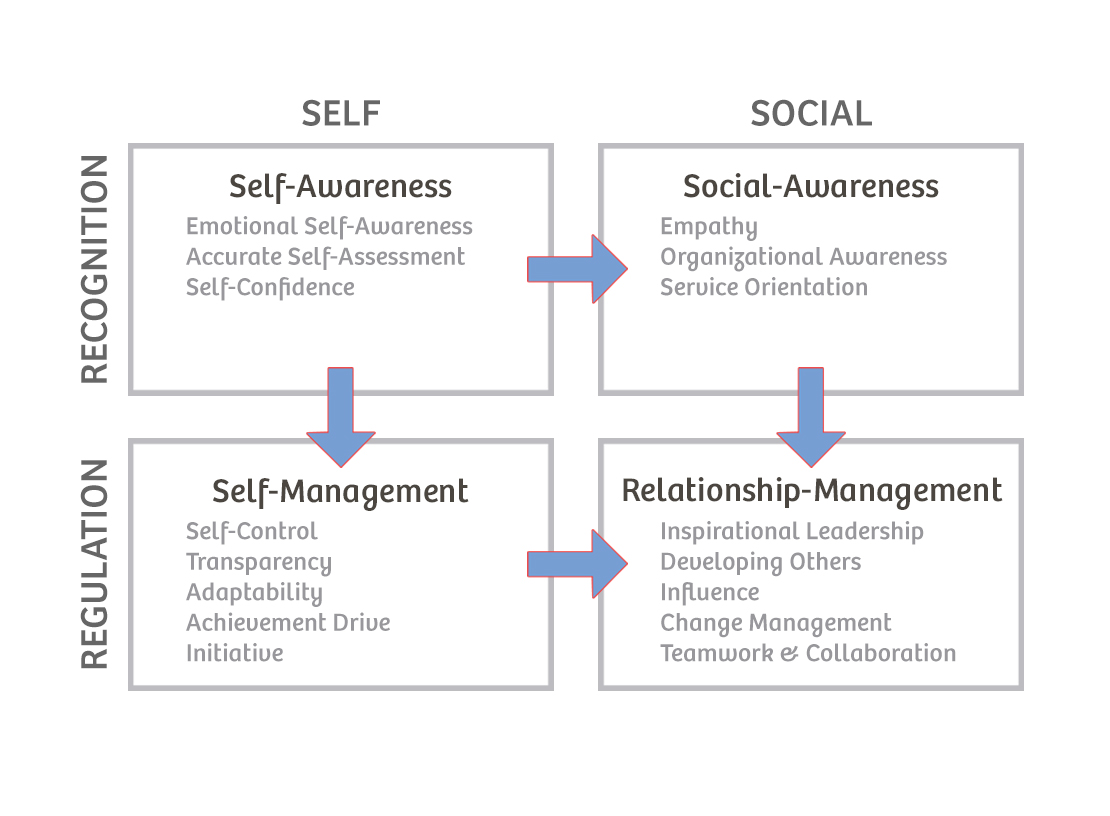Mayer in association with social psychologist peter salovey and management psychologist david r. Emotional intelligence has to do with one’s ability to both recognise and control their own emotions, while harnessing said emotions appropriately to have the most optimum reaction as situations dictate.

PPT Daniel Goleman’s of Theory of Emotional Intelligence and
The topic of leadership is complex.

Theories of emotional intelligence in leadership. Learning stimulates curiosity and promotes. If you aspire to be in a leadership role, there’s an emotional element you need to consider. The various emotional intelligence theories and measures are then discussed.
Cognitive flexibility is one of the most important skills that school administrators should have in today's world of rapid change and transformation. A distinction between emotional intelligence as a trait and emotional intelligence as an ability was introduced in 2000. It’s called emotional intelligence, and accounts for nearly 90 percent of what sets high performers apart from peers with similar technical.
This article presents the role of emotional intelligence in leading change in an organization. It also has to do with one’s awareness of and sensitivity towards others’ emotions. The ei guru of gurus is daniel goleman.
Emotional intelligence is therefore an important. Emotional intelligence and leadership effectiveness. Emotional intelligence is just one way of assessing the impact of personality traits on leadership (p.
These researchers coined the notion of esi, and their. According to goleman, bullying, disciplinary problems, violence and drug abuse are reduced in schools with a high eq. For leaders, having emotional intelligence is essential for success.
With a solid basis in emotional intelligence, academic performance — as well as behavior — improves. From a scientific (rather than a popular) standpoint, emotional intelligence is the ability. The early theory of emotional intelligence described by salovey and mayer in 1990 explained that ei is a component of gardner’s perspective of social intelligence.
Has shown that measuring and developing emotional intelligence. Caruso (the latter to a lesser extent) during the early 1990s. The trait approach to leadership was based on the great man theory, it was originally thought that some people were born with great leadership traits, and only those people could be leaders (northouse, 2016, p.
The leadership initiative allowed cultural differences to emerge, be discussed and ultimately be better understood. People with a high degree of emotional intelligence know what they're feeling, what their emotions mean, and how these emotions can affect other people. To better understand the constructs, a history and some current views on leadership are discussed.
And our research shows that the emotional intelligence competencies of great leadership can be cultivated through training and practice. Primal leadership is based on four main elements of emotional intelligence: The present study identifies the congruence between various aspects of emotional intelligence and essential leadership competencies.
Emotional intelligence is a popular and successful measure for identifying effective leaders and as a tool for developing effective leadership skills (palmer et al., 2001). A person can employ their social abilities and high emotional skills for prosocial. Leaders with six or more esci competencies contribute to a positive team climate, team performance and employee engagement.
What is emotional intelligence leadership theory and why is it important? Esi as a theoretical concept was generally the product of personality psychologist john d. Daniel goleman’s model (1998) focuses on ei as a wide array of competencies and skills that drive leadership performance, and.
Once you’ve determined which areas to work on, focus on achieving one or two goals. It’s what helps you successfully coach teams, manage stress, deliver feedback, and collaborate with others. Emotional intelligence (eq), as any set of abilities or skills has two sides, bright and dark.
The theory behind emotional intelligence in leadership is one of those theories that simply sounds right, and luckily it does have evidence behind it too. Emotional intelligence in leadership is the set of emotional and social skills that as leaders, influence the way we perceive and express ourselves, develop and maintain social relationships, cope with challenges, and use emotional information in an effective and meaningful way. How to start growing your leaders’ emotional intelligence and leadership flexibility.
He and numerous other researchers suggest it’s ei that makes the difference between a truly. Some years later, mayer defined it in hbr this way: The educational business articles website can get to the heart of the theory in one quick question:
Emotional intelligence or ei is the ability to understand and manage your own emotions, and those of the people around you. There is an obvious connection to goleman’s third, motivational component: Daniel goleman’s emotional intelligence theory outlines five components of eq:
Model of emotional and social intelligence.

Infographic Emotional intelligence, Good leadership skills
Situational Leadership Emotional Intelligence Learning Theory

How leadership, emotional intelligence and coaching fit together

Figure 1 Emotional intelligence, Trust in relationships, Theories

